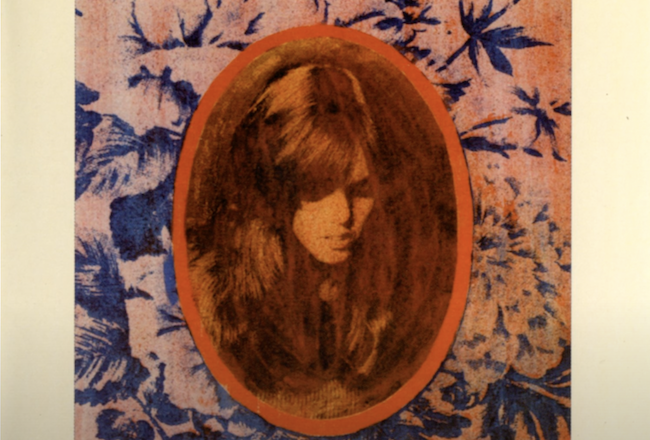Who even does what Barbara Keith did? Having made a brilliant singer-songwriter album, she relinquished the album-advance money and quit the music industry for 25 years, writes Stephen Saunders.
BARBARA KEITH hails from the northeast of the USA. Her precocious gifts propelled her into the groovy New York folk scene of the middle 1960s. A few years after Bob Dylan went there.
Her first self-titled album (Verve Forecast) contains several standouts. The youthful performer seemed to emerge as a well-realised composer and singer. She had caught the attention and backing of industry heavy hitters and scored a three-album deal, so things looked promising.
Apparently, her second self-titled album (Reprise Records) was written and recorded some while before its release early in 1973.
Through WEA, this LP also won an Australian release. For several years afterwards, Australian pressings marked as low as 50 cents would appear in the discount racks. Value plus.
Furnished with ace Los Angeles producer Larry Marks and top session musos of the time, Keith had hit the ball out of the park. She should have had success on her hands. Yet, citing personal dissatisfaction, she chose to stiff her own album. And walk away from the industry — leaving behind many “what if” questions.
In 1998, she reappeared out of the blue with her husband-and-stepson's Stone Coyotes. They’ve made a slew of albums showcasing new Keith originals. Texas loves this band.
The originals on the Reprise album were covered in the 1970s through 1990s. Including, surprisingly, by Australian pop stars Olivia Newton-John and Sherbet.
The album continues to be reissued this century, as recently as 2022. Its songs are still being reworked. In its intensity and focus, it has few equals among noted 1970s singer-songwriter albums. It stands up well to the 1970s albums on this recent listicle. Both the obvious and the obscure.
Keith’s album-opener is itself a cover — Dylan’s 'All Along the Watchtower'. Boldly deconstructing the Jimi Hendrix version, Keith sure makes Dylan’s wildcat “growl” and wind “howl”. Not so surprising if you check out the A-team in the credits — bass players’ bassist Lee Sklar, drumming royalty Jim Keltner and soul legend Spooner Oldham on electric piano.
The twenty-something singer’s own modestly framed compositions were worlds apart from the towering allusions and idiosyncrasies of the young Dylan.
It was as if an unadorned muse came a-knocking and Keith was game for the challenge. In this purple patch, she matched it with the best songwriters around. Her life reward was an inimitable suite of songs for love (or self) forsaken and regained. Simple, but not simplistic.
These plain-spun lyrics – easy to learn and hard to forget – look as if they’ve always been there. And yet, I doubt they would have been composed that much earlier than the 1970s. Or that much later.
As the years roll on, Keith’s 'The Bramble And The Rose' is often taken for a folk traditional.
Keith compresses folk wisdom into three tidy verses while Richard Bennett contributes the grace notes on pedal steel guitar:
'We have been so close together each a candle each a flame
All the dangers were outside us and we knew them all by name
Now see how the bramble and the rose intertwine
Love grows like the bramble and the rose, often cruel often kind.'
'Burn The Midnight Oil' is another pathway back to love:
'You the sun come rising over all my life sleep
And your love sweet surprising take away the cares I keep.'
While its companion piece is 'The Road I Took To You':
'Like a glass raised too many times I broke in two
I was walking around in pieces and I never even knew
That the way back home to me was the road I took to you.'
Both these tunes are sung simple and soulful, with Keith on piano and Sklar doing bass.
Keith’s most frequently covered song, the overt spiritual, is 'Free The People', which she had originally issued as an A&M single as far back as 1970.
The track that closes the album, 'A Stone’s Throw Away', anticipates the rocking Coyotes sound that Keith apparently craved:
My friends from the sidewalk have all gone home
The time on the hotel clock is not my own
I’ve been taken by a blind man who swore that he could see
Now he’s fallen by the wayside, but he’s way ahead of me
Just a stone’s throw away from my blood relations.
But the last word should go to 'Detroit Or Buffalo'. The one that Keith naturally redid with her Coyotes. It has always been my go-to lament in times of sudden heartache. Stellar sidemen lift the original Reprise track above its essential despair.
Lowell George of Little Feat works his slide guitar and Sneaky Pete from The Burritos plays pedal steel:
Hard to open up the door like you done so many times before
Sometimes you think you just can’t do it anymore
Take a chance and take a train out into the pouring rain
All you got’s your suitcase full of pain
But you’d better pack up and go, Detroit or Buffalo.
Train/rain/pain? Sure, why not. That “suitcase full of pain” is striking. In black American music of the 1920s, however, you do find a “suitcase full of blues”.
Consciously or unconsciously, all artists appropriate and adapt stuff. The point is to find that special sauce that makes it uniquely theirs. With this album, Keith succeeded.
Stephen Saunders is a former public servant, consultant and 'Canberra Times' reviewer.
 This work is licensed under a Creative Commons Attribution-NonCommercial-NoDerivs 3.0 Australia License
This work is licensed under a Creative Commons Attribution-NonCommercial-NoDerivs 3.0 Australia License
Support independent journalism Subscribe to IA.












